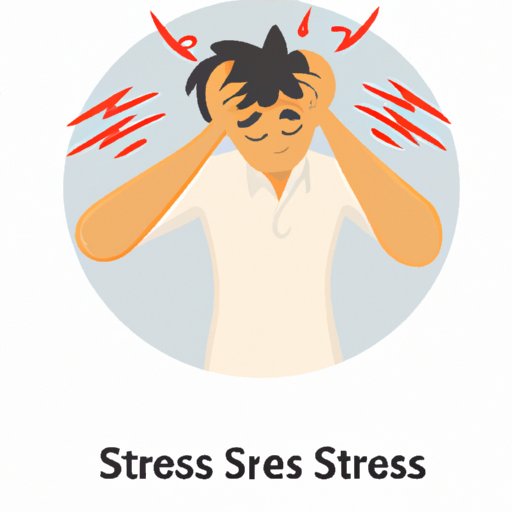
Introduction
We have all felt the pressure of stress – deadlines at work, relationship troubles, financial burdens, and the list goes on. But did you know that stress can have a profound effect on your physical health? Research has shown that stress can impact multiple systems in our bodies, leading to both immediate and long-term health problems. In this article, we’ll explore the impact of stress from head to toe, understanding the body’s response to stress, and how it affects long-term health.
From Head to Toe: How Stress Affects the Human Body
Stress can wreak havoc on our bodies in many ways. We all know that feeling of butterflies in our stomachs before a presentation or the tension in our muscles during a high-pressure event. But did you know that stress can lead to digestive issues, respiratory problems, and musculoskeletal pain? Chronic stress can even impact our nervous system, leading to anxiety and depression.
One example of the impact of stress on the body is the effect it can have on our digestion. Stress hormones can lead to nausea, heartburn, and even diarrhea. In the respiratory system, chronic stress can contribute to asthma attacks or difficulty breathing. And in the musculoskeletal system, stress can cause tension headaches, back pain, and even muscle spasms.
The Invisible Damage: The Physical Toll of Chronic Stress
While stress often manifests itself in physical symptoms, it can also lead to long-term physical damage. Chronic stress can lead to hypertension, obesity, and diabetes, amongst other health problems. Stress hormones like cortisol can disrupt the body’s natural balance, leading to imbalances in metabolism, inflammation, and blood sugar levels. Over time, these disruptions can contribute to the development of chronic health conditions.
Fight or Flight: Understanding the Body’s Response to Stress
While the effects of stress can seem overwhelming, it’s important to understand why our bodies respond to stress in the ways they do. When we encounter a stressful event, our bodies kick into “fight or flight” mode, a biological response that prepares us to either fight the source of stress or run from it. This response evolved as a survival mechanism to ensure that early humans could respond to threats like predators, but in modern times, it’s often activated by non-life-threatening events, such as traffic jams or work deadlines.
Stress hormones like adrenaline and cortisol are released during the “fight or flight” response, leading to increases in heart rate and blood pressure, and causing the release of glucose to provide energy to the muscles. These changes are essential in preparing our bodies to deal with a potential threat, but over time, they can lead to wear and tear on the body.
The Heartbreaking Truth: The Link Between Stress and Heart Disease
One of the most significant impacts of chronic stress is on the heart. Research has found that stress increases the risk of heart disease, with chronic stress leading to higher blood pressure, inflammation, and the formation of blood clots. These factors can contribute to the development of cardiovascular disease, the leading cause of death worldwide.
Stress: The Silent Killer of Your Body’s Immune System
The immune system plays a critical role in keeping our bodies healthy, fighting off infections, and keeping us well. Chronic stress can suppress the immune response, leaving us more vulnerable to illness and disease. Stress hormones interfere with the production of white blood cells, which are essential in fighting infections. Over time, this can lead to a weakened immune system that is less able to fight off infections and illnesses.
Conclusion
The impact of stress on the body is far-reaching and can lead to both immediate and long-term health problems. Learning to manage stress is essential for our well-being and long-term health. There are many ways to manage stress, including exercise, mindfulness practices, and seeking social support. If you’re struggling with managing stress, consider talking to a mental health professional who can offer strategies and support. Your body will thank you in the long run.





